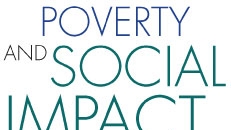- Remarks by World Bank Poland Country Manager Marina Wes
- Video Blogs from the International PSIA Conference in Warsaw
This regional PSIA learning event in Poland has been an opportunity to collectively reflect on the successes in moving forward the PSIA agenda, but also the challenges and difficulties we face with this work so that we can learn from each other. Given the strong demand and interest from policymakers and other stakeholders in Europe and Central Asia, the event aimed at bringing together representatives from government, civil society, academia and the development community to discuss lessons from practice.
The key objectives of the learning event were to:
- showcase PSIA issues and findings covering a range of topics including water, social safety nets and energy, gas and mining;
- discuss methodological and practical challenges to designing and conducting PSIAs in the region;
- exchange experiences on how to use PSIA that is to navigate the difficult dialogue and social pact around reforms and to translate findings into improved policy design;
- examine ways to improve the implementation and effectiveness of reforms through enhanced stakeholder engagement (policy makers, civil society, academia, media, etc.);
- explore the scope for knowledge exchange and capacity building in Europe and Central Asia.
The learning event encompassed a 2-day regional conference that brought together key policymakers, development partners and local stakeholders. From each country, invitees included representatives from government, civil society and academia who have an interest in poverty and social impacts of reforms.
The format included presentations, expert panels, and thematic in‐depth discussions that highlight issues and findings from the selected studies and experiences.
The conference was beneficial to representatives from civil society/academia as it highlighted the importance and relevance of PSIAs proposing opportunities for more engagement during the PSIA process. For technical staff, the focus on best practices for designing and implementing a PSIA proved to be valuable.
